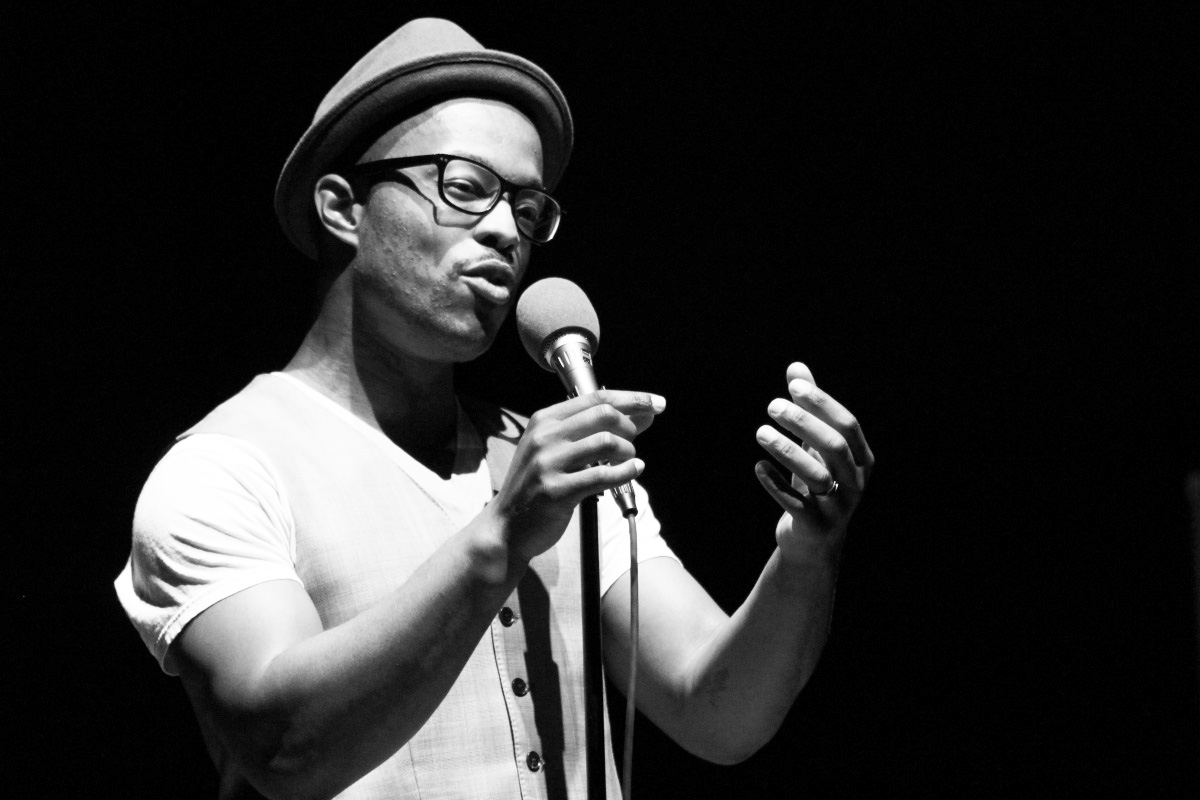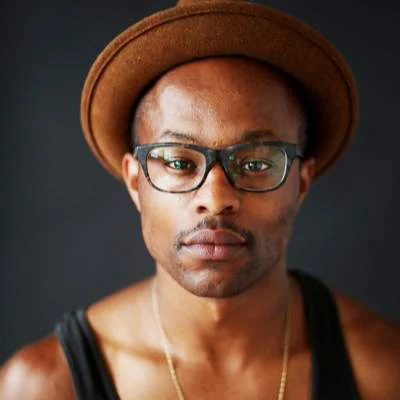On June 24, 2017, Resonance Ensemble performed a concert called “…. only in falling” presenting music and monologues that explored personal grief, healing, and transformation. On July 3, Oregon Arts Watch published a review of the concert by Terry Ross. The review contained several troubling sentences about Vin Shambry’s performance of his original work, “Brother Man.” On July 7, Artistic Director Katherine FitzGibbon and actor/singer Vin Shambry published the following letter on Oregon Arts Watch.
We are troubled by the macro- and microaggressions against Vin Shambry’s piece “Brother Man.” We write to ask Ross and Oregon Arts Watch to consider the language and ideas they published and to invite our arts community to engage in dialogue about who is in charge of whose art, who decides what is welcome (especially in “classical” music performances), and how we can empower the arts community and, especially, the next generation to represent and witness many voices and perspectives.
WATCH THE VIDEO HERE:
There were a shocking number of problematic statements in the two sentences Ross wrote about “Brother Man.” To call it an “impersonation” implies a kind of caricature or something inauthentic, which follows in the long tradition of minstrelsy and of rendering black performances as inferior to white performances. Vin’s piece was a genuine statement of his own perspective, his daily perspective which is informed by being a man of color living in our predominantly white city and in this time in the United States. Ross cannot understand Vin’s perspective – no one can fully understand another person’s perspective – so to label it as an “impersonation” devalues it and sets it aside.
Second, Vin’s sung performance had nothing to do with “rap style.” Rap incorporates "rhyme, rhythmic speech, and street vernacular" (Keyes 2004:1). It is astounding that Ross would lump this performance into the category of rap.
Third, this also had nothing to do with Black Lives Matter, which is an entire movement with a specific set of goals. Again, “Brother Man” expressed Vin’s personal feelings and his experience of daily life.
Fourth, Ross refers to the “ghetto’s mean streets” and “murderous cops,” neither of which stereotypes figured whatsoever in Vin’s piece.
Fifth, Ross writes that “blacks were not, to my recollection, specifically mentioned.” Ross’s tone when he refers to “blacks” is not only off-putting but suggests that the experience of all African-Americans, Africans, and African-Caribbeans are the same (and linked with the “ghetto” and “mean streets”).
And if “blacks” were not specifically mentioned (in point of fact, there is a single mention of “men of color” in the piece), then why did he conclude that the piece was in the manner of a Black Lives Matter “screed”?
Sixth, and most devastatingly, Ross concludes, “This small bit of actorly free expression was desperately out of place and unwelcome in this setting.” This statement troubled and angered us such that we feel the need to affirm how welcome Vin’s perspective was and is, in the world of classical music and whatsoever. We affirm that concert and theater performances are richer and deeper when they are inclusive of many points of view, both aesthetically and psychologically. (Ross also criticized other styles that were not classically choral, as in his remarks about the inclusion of singer-songwriter Nikole Potulsky, an artist with a national reputation who is just coming off a sold-out solo show in Portland). It seems that Ross has a narrow understanding of what “belongs” on a classical music concert, and indeed, an understanding that does not reflect the fundamental mission of Resonance Ensemble, one of collaboration with many styles, art forms, and communities. We believe that art can provoke and move its listeners. Clearly, Mr. Ross felt provoked by and uncomfortable with the inclusion of Vin’s piece, and we ask him to consider why it did not feel “welcome.”
The silver lining is that this review has galvanized us to develop several new collaborations to celebrate the potential of theater and classical music to share underrepresented perspectives; showcase the work of actors, singers, composers, and directors of color; and show young people in particular that the worlds of classical music and theater do welcome all of us. We are developing an experimental theater and music piece with Vin, Resonance Ensemble and the Artists Repertory Theatre that will seek to show Vin’s inner thoughts as he walks through Portland as a man of color. We are each continuing and expanding initiatives that reach out to students and families of color. And we hope to continue to reach out to our arts community through our intentional programming choices, panel discussions, and other forms of engagement to continue to help Portland become a more welcoming and compassionate place.
Sincerely,
Vin Shambry and Katherine FitzGibbon


